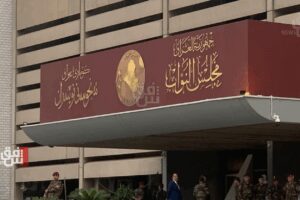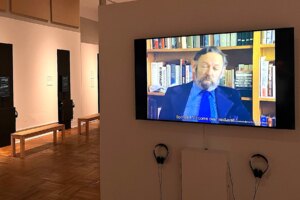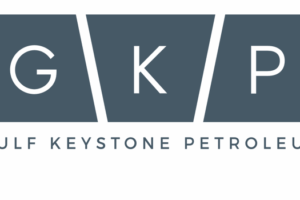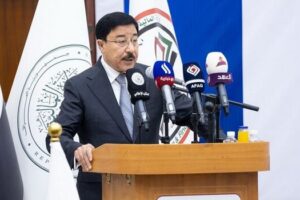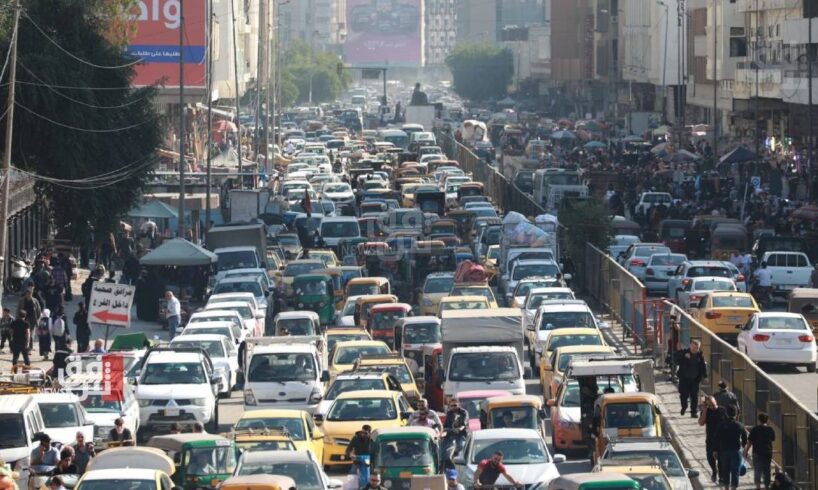
2025-09-10T21:32:12+00:00
font
Enable Reading Mode
A-
A
A+
Shafaq News
Iraq’s population is expanding at one of the fastest rates
in the Middle East, adding more than a million people annually at a growth rate
of 2.5%. The 2024 census recorded 46 million citizens, and international
forecasts suggest the figure could reach 75 million by mid-century.
The pace rivals the annual population growth of entire
countries such as Spain or Australia, but without equivalent infrastructure or
services. For Iraq, this demographic wave represents both a risk and an
opportunity: it could overwhelm schools, hospitals, and water supplies, or it
could fuel renewal if paired with investment in human capital and economic
diversification.
Economist Mustafa al-Faraj told Shafaq News that unchecked
growth is already stretching basic services. “The surge has lifted overall
unemployment to about 15% and youth unemployment to 32%,” he said. “If left
without policy, this will become a mounting burden. But if managed wisely, it
could transform into a demographic dividend that boosts growth and creates
sustainable jobs.”
Researcher Hawraa al-Yasseri agreed that Iraq’s young labor
force can be an asset. “Youth are a source of innovation, especially in
technology and renewable energy,” she said, noting that rising demand also
stimulates non-oil sectors such as trade and tourism, providing new avenues for
growth.
Al-Yasseri warned that per-capita water supply is projected
to fall to critical levels under climate stress, while overcrowded schools and
underfunded clinics risk undermining human development. “Greater demand without
matching production risks fueling inflation,” she added.
Al-Faraj highlighted a deeper structural gap. “What we have
lacked since 2000 is a parallel leap in planning. The streets, networks, and
utilities are almost the same, while the population keeps climbing. With
two-thirds of Iraqis now in cities, the imbalance between people and state
capacity explains today’s bottlenecks.”
To respond, the Ministry of Planning unveiled a National
Population Policy in 2024, covering 11 areas from childhood to old age.
Ministry spokesman Abdul-Zahra al-Hindawi told Shafaq News the framework has
been folded into the 2024–2028 five-year plan. It seeks to balance growth with
services, empower youth and women, support vulnerable groups, and address
climate impacts.
“These measures are designed to align demographic realities
with development goals, targeting health, education, housing, and climate
adaptation,” al-Hindawi pointed out.
The census also reflected wider social trends. Poverty has
declined modestly, from 21.5% in 2022 to 17.6% in 2024, but fertility remains
relatively high at 3.3 children per woman, 3.2 in the Kurdistan Region.
“Without rapid investment, the gap between demographic pressures and service
capacity could reopen a cycle of poverty,” Al-Farraj warned.
Despite the policy framework, lawmakers warn that
implementation lags population realities. Mahdiya al-Lami, a member of
parliament’s Services and Reconstruction Committee, described many districts as
severely underserved, calling some effectively “disaster zones” for services.
She urged targeted government plans prioritizing housing, water, and
infrastructure in the fastest-growing areas.
Experts argue that Iraq must act decisively to turn its
demographic curve into an economic asset. Al-Faraj recommended scaling up
vocational and technical education linked to local value chains in agriculture,
light industry, and digital services. He also urged reforms that lower barriers
to women’s participation in the economy, such as childcare provision, safe
transport, and flexible labor laws.
Equally important, he said, are infrastructure programs
designed to generate jobs. “A program of roads, water, electricity, and urban
housing—linked to local suppliers and labor—can both modernize Iraq and absorb
the growing workforce,” he noted.
For al-Yasseri, “Iraq must expand non-oil industries to
create new jobs and invest in human capital through health and education
spending,” she said. She also called for targeted investment in water and
energy systems, awareness campaigns on population policies, and stronger
governance to curb corruption.
Written and edited by Shafaq News staff.
